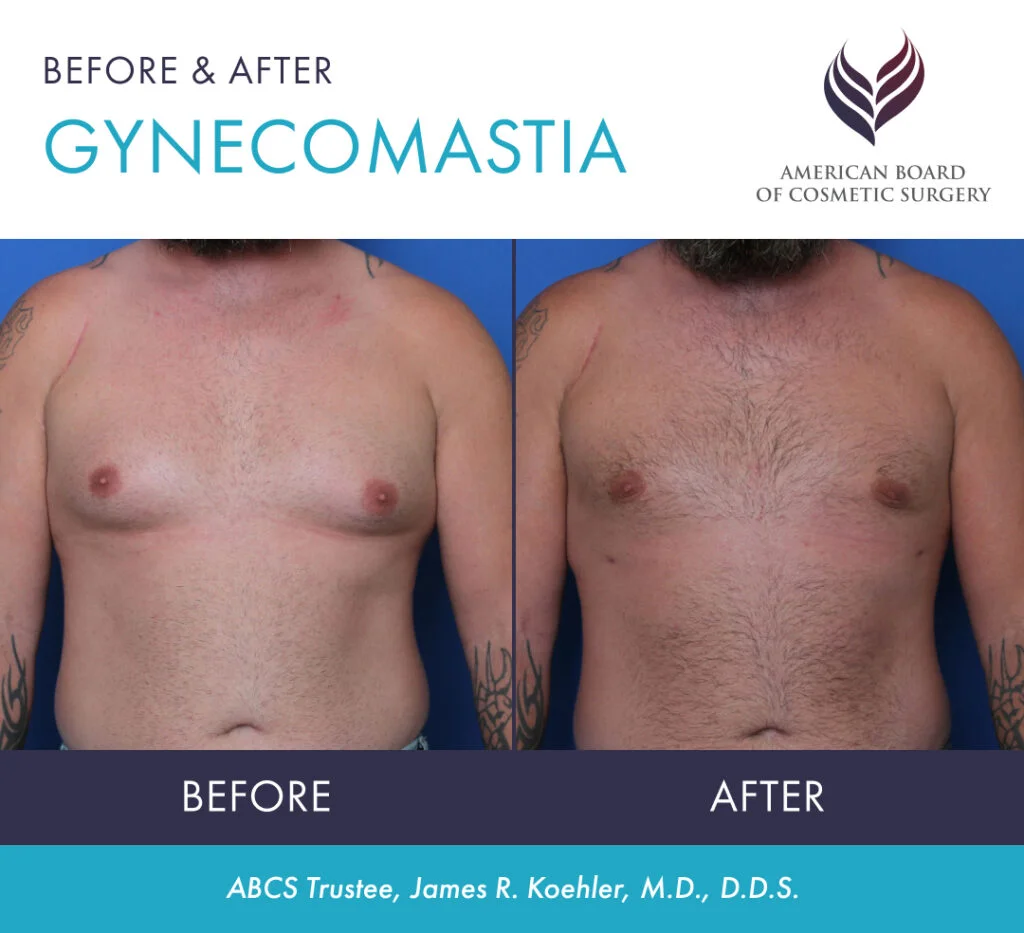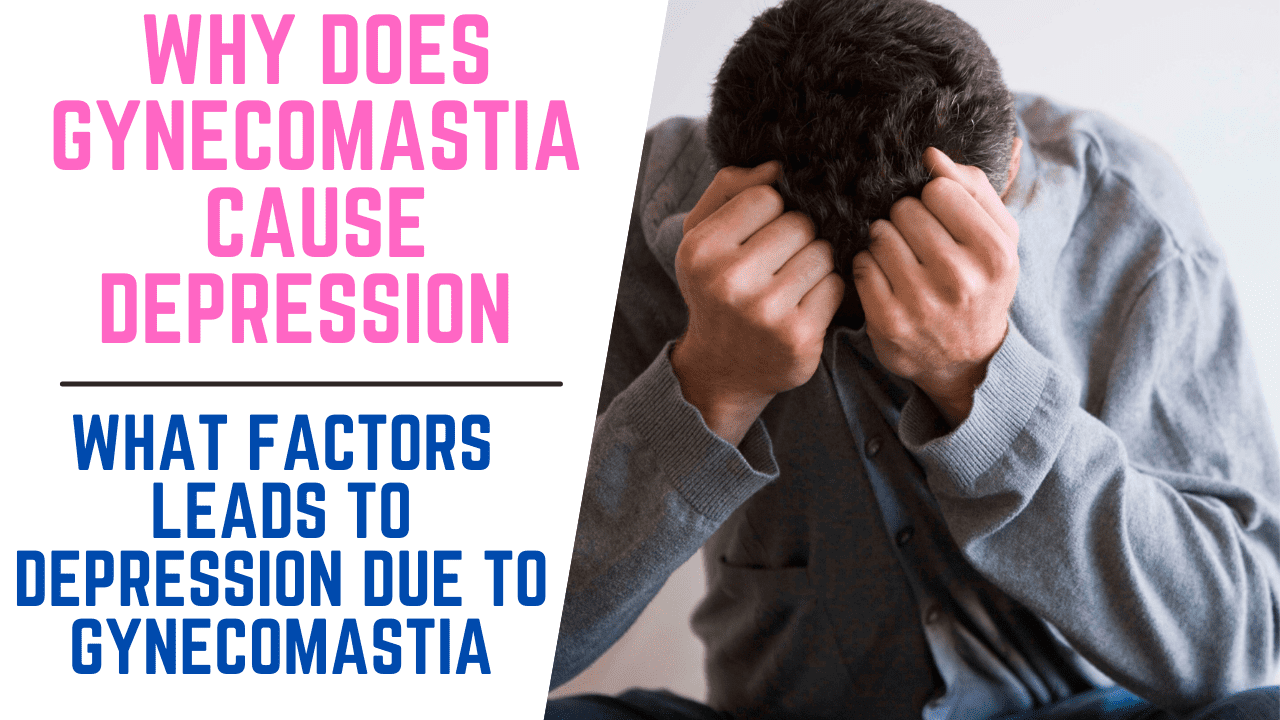Gynecomastia Depression
by Admin
Posted on 10-12-2024 01:33 PM

Causes and Symptoms of Gynecomastia
Gynecomastia is a common condition that affects an estimated 40-60% of males. It can occur at any age, but is most commonly seen during puberty and in older men. The condition is caused by an imbalance of hormones, specifically an increase in estrogen and a decrease in testosterone. This hormonal imbalance can be the result of a variety of factors, including obesity, certain medications, and underlying medical conditions.
The symptoms of gynecomastia can vary in severity, but typically include the enlargement of breast tissue, tenderness, and swelling. In some cases, individuals may also experience nipple discharge or breast pain. The physical symptoms of gynecomastia can be distressing, but it is the emotional and psychological effects that can have the most significant impact on an individual's quality of life.
The Emotional and Psychological Effects of Gynecomastia
The emotional and psychological effects of gynecomastia can be significant, and can include feelings of anxiety, low self-esteem, and depression. Individuals with gynecomastia may feel self-conscious about their appearance, and may avoid social situations or activities that involve removing their shirt. This can lead to feelings of isolation and loneliness, which can exacerbate the symptoms of depression.
Body Image and Self-Esteem
Body image and self-esteem are closely linked, and individuals with gynecomastia may struggle with negative body image and low self-esteem. The physical symptoms of gynecomastia can make individuals feel like they do not fit societal norms of masculinity, leading to feelings of shame and embarrassment. This can be particularly challenging for adolescents and young adults, who are already navigating significant physical and emotional changes.
Social and Relationship Challenges
Gynecomastia can also have a significant impact on an individual's social and relationships. Individuals may feel like they are unable to form intimate relationships or participate in social activities, due to feelings of shame or embarrassment about their appearance. This can lead to feelings of isolation and loneliness, which can exacerbate the symptoms of depression.
Treatment Options for Gynecomastia
There are a variety of treatment options available for gynecomastia, including medication, surgery, and lifestyle changes. The most effective treatment will depend on the underlying cause of the condition, as well as the severity of the symptoms.
Medication
Medication can be used to treat gynecomastia, particularly if the condition is caused by an underlying hormonal imbalance. Selective estrogen receptor modulators (SERMs) and aromatase inhibitors can be used to reduce the levels of estrogen in the body, which can help to alleviate the symptoms of gynecomastia.
Surgery
Surgery is also an option for treating gynecomastia, particularly if the condition is severe or persistent. Surgical options include mastectomy, which involves the removal of breast tissue, and liposuction, which involves the removal of excess fat.
Lifestyle Changes
Lifestyle changes can also be effective in treating gynecomastia, particularly if the condition is caused by obesity or other lifestyle factors. Eating a healthy diet and engaging in regular exercise can help to reduce body fat, which can help to alleviate the symptoms of gynecomastia.
Coping with Gynecomastia and Depression
Coping with gynecomastia and depression requires a comprehensive approach that addresses both the physical and emotional symptoms of the condition. This can include seeking support from friends and family, as well as from mental health professionals.
Seeking Support
Seeking support from friends and family can be an important part of coping with gynecomastia and depression. Talking to loved ones about your feelings and experiences can help to alleviate feelings of shame and embarrassment, and can provide a sense of connection and support.
Mental Health Treatment
Mental health treatment can also be an important part of coping with gynecomastia and depression. Cognitive-behavioral therapy (CBT) and other forms of talk therapy can help individuals to address negative thought patterns and behaviors, and can provide coping strategies and techniques for managing symptoms of depression.
Conclusion
Gynecomastia and depression are complex conditions that require a comprehensive approach to treatment and management. By understanding the causes and symptoms of gynecomastia, as well as the emotional and psychological effects of the condition, individuals can take the first step towards seeking help and support. With the right treatment and support, it is possible to manage the symptoms of gynecomastia and depression, and to improve overall quality of life.
Additional Resources
There are a variety of resources available for individuals who are struggling with gynecomastia and depression. These resources can provide support, guidance, and connection, and can help individuals to navigate the challenges of these conditions.
Understanding the Procedure
For individuals struggling with excess breast tissue, male breast reduction surgery can be a life-changing solution, offering a more masculine chest contour and improved self-confidence. This surgical procedure is designed to remove excess fat, glandular tissue, and skin, resulting in a flatter, more masculine appearance. The goal of the surgery is to create a natural-looking chest that is proportionate to the individual's body, allowing them to feel more comfortable in their own skin.
FAQs
What is gynecomastia?
Gynecomastia is a condition characterized by the enlargement of breast tissue in males. It can occur at any age, but is most commonly seen during puberty and in older men.
What are the symptoms of gynecomastia?
The symptoms of gynecomastia can vary in severity, but typically include the enlargement of breast tissue, tenderness, and swelling. In some cases, individuals may also experience nipple discharge or breast pain.
How is gynecomastia treated?
There are a variety of treatment options available for gynecomastia, including medication, surgery, and lifestyle changes. The most effective treatment will depend on the underlying cause of the condition, as well as the severity of the symptoms.
Can gynecomastia cause depression?
Yes, gynecomastia can contribute to feelings of anxiety, low self-esteem, and depression. The emotional and psychological effects of gynecomastia can be significant, and can have a profound impact on an individual's quality of life.
Where can I find support for gynecomastia and depression?
There are a variety of resources available for individuals who are struggling with gynecomastia and depression. These resources can include support groups, online forums, and mental health professionals.
Michael Law MD Aesthetic Plastic Surgery
10941 Raven Ridge Rd #101,
Raleigh, NC 27614,
919-256-0900
